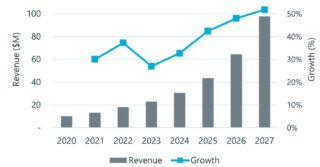Nissan has launched its most advanced production line and is working on creating an emission-free manufacturing process for its next-generation vehicles. The company built a futuristic factory in Tochigi to create a greener production process while helping it deal more effectively with the aging population and labor shortages in Japan. In the coming years, it plans to introduce the Smart Factory project in other locations around the world.
➡ Additionally, the Japanese car maker announced it will invest over $ 1.2 billion over the next 7 years to promote the Smart Factory initiative.
With the Smart Factory, Nissan is headed in a direction that most players will soon follow. Mercedes-Benz is also already in the game in “Factory 56”, a flexible digital and environmentally friendly production line based on Industry 4.0. Ford’s Blue Oval City also aims to provide high-quality production with always available cloud connectivity technology. Other companies such as VW, Audi and the BMW Group are rapidly adopting Industry 4.0 to digitize the production of vehicles of the future.
How did Nissan do it? There have been huge changes in vehicle technology in recent years and there is room for major changes in production technology. The production line replaces workers with robots in each process, shortening the lead time and ensuring high quality of production.
For example, previously many driveline components such as the battery, engines and rear suspension were manually installed in a six-part process. Everything has now become one robotic process. Both the body and the plastic bumper are painted together, not separately. Fixing, adjusting the suspension fittings, mounting the headliner, mounting the cockpit module, engine windings, paint inspection, etc. are automated processes in an intelligent factory. The production line can produce 27 varieties of vehicles, including BEV, HEV and ICE vehicles. It also provides quality based on IoT and AI systems, remote diagnostics and device maintenance, reducing recovery time by 30%.
➡ The plant is equipped with a multitude of sensors to detect production problems, and an additional 267 360 ° stereoscopic cameras will monitor the processes.
The Smart Factory aims to be carbon neutral throughout the vehicle’s entire “life cycle”. Nissan is committed to 100% electrified production by 2030 and will rely solely on renewable energy sources such as geothermal, solar and wind power to meet its own energy needs.
➡ More information about the technologies used in the factory: www.nissan-global.com/EN/TECHNOLOGY/OVERVIEW/nif.html


![Forecasts, Opportunities, and Challenges for the Polish Industry in 2024 [ANALYSIS] Forecasts, Opportunities, and Challenges for the Polish Industry in 2024 [ANALYSIS]](https://industryinsider.eu/wp-content/uploads/xIndustry-40-320x167.jpg.pagespeed.ic.o8zijDQlIJ.jpg)
![The importance of artificial intelligence in transport and automotive industry is growing [REPORT] The importance of artificial intelligence in transport and automotive industry is growing [REPORT]](https://industryinsider.eu/wp-content/uploads/xcity-320x167.jpeg.pagespeed.ic.xFkQdk7qXO.jpg)
![By 2030, the market size of metal processing tools is expected to reach $120.44 billion [REPORT] By 2030, the market size of metal processing tools is expected to reach $120.44 billion [REPORT]](https://industryinsider.eu/wp-content/uploads/xcutting-tools-320x167.jpg.pagespeed.ic.SgnEk-RWA-.jpg)
![Methane emissions remains elusive challenge for oil and gas industry [REPORT] Methane emissions remains elusive challenge for oil and gas industry [REPORT]](https://industryinsider.eu/wp-content/uploads/xMethane-emissions-by-source-320x167.jpg.pagespeed.ic.q-7jG2luXb.jpg)

![Will digital twin revolutionize the aerospace and defense sector? [REPORT] Will digital twin revolutionize the aerospace and defense sector? [REPORT]](https://industryinsider.eu/wp-content/uploads/xdigital-twin-in-aerospace-320x167.jpg.pagespeed.ic.K-YNPhggcS.jpg)